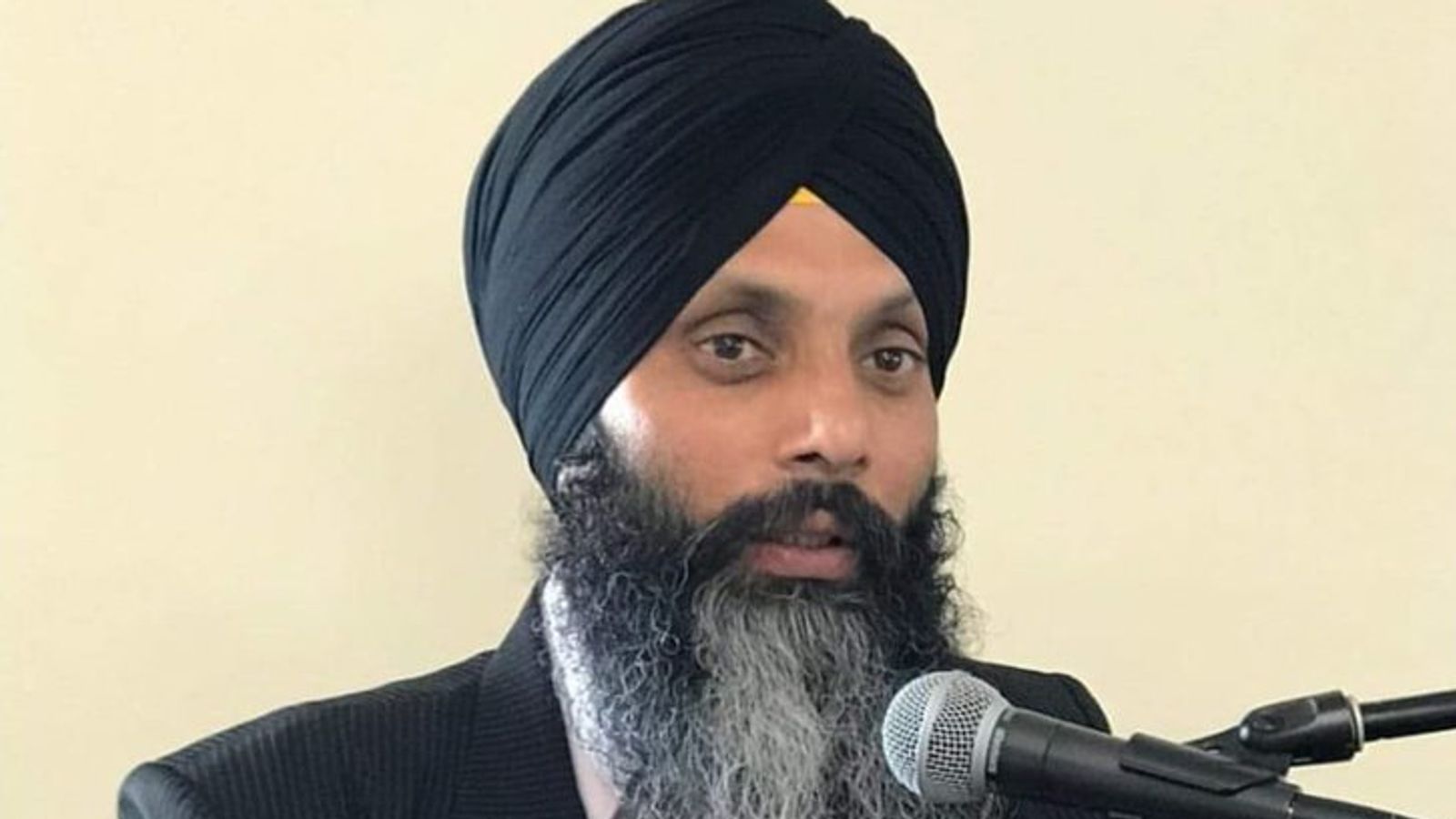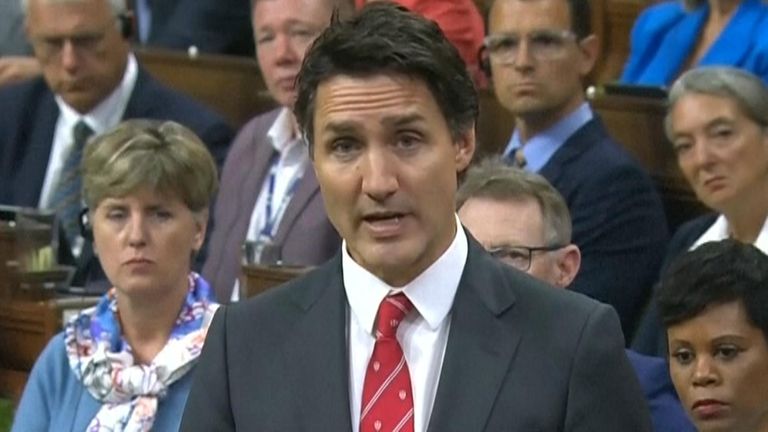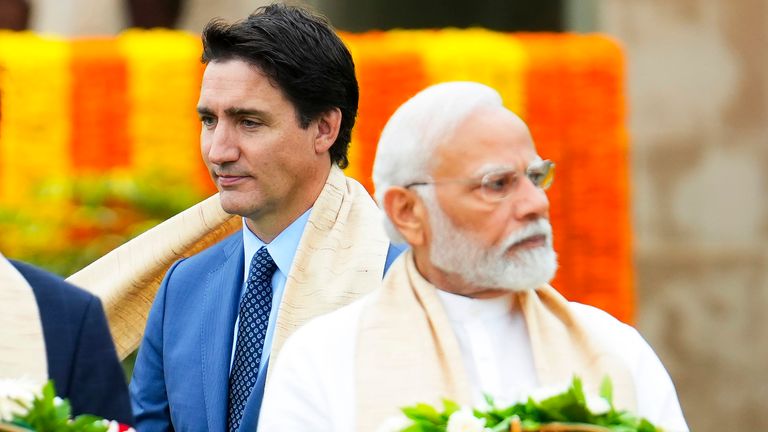Three charged over killing of Sikh separatist leader in Canada – in incident which sparked diplomatic spat with India


Three suspects have been charged by Canadian police over the killing of a Sikh separatist leader in Vancouver last June, in an incident that sparked a diplomatic spat between Ottawa and New Delhi.
Hardeep Singh Nijjar, 45, was shot dead outside a temple by masked gunmen in Surrey, outside Vancouver, on 18 June 2023.
Royal Canadian Mounted Police assistant commissioner David Teboul said police could not comment on the nature of the evidence or the motive.
“This matter is very much under active investigation,” Teboul said.
The three suspects – Indian nationals Kamalpreet Singh, Karan Brar and Karampreet Singh – were arrested in Edmonton, Alberta, the Royal Canadian Mounted Police said.
Superintendent Mandeep Mooker said: “This investigation does not end here. We are aware that others may have played a role in this homicide and we remain dedicated to finding and arresting each one of these individuals.”
Please use Chrome browser for a more accessible video player
1:18
Canada killing ‘linked’ to India govt
Canadian Prime Minister Justin Trudeau sparked a diplomatic feud with India when he said in September that there were “credible allegations” of Indian involvement in the killing. India angrily denied involvement.
Mr Nijjar, an Indian-born citizen of Canada, was a leader in what remains of the Khalistan movement – a once-strong group calling for the creation of an independent Sikh homeland.
He was organising an unofficial referendum in India for an independent Sikh nation at the time of this death and had denied allegations of ties to terrorism.
Advertisement
The Khalistan movement has lost much of its power but is still supported by some in the Punjab state in northwestern India and in the Sikh diaspora overseas.
More from Sky News:
China launches world first Space mission
Four babies found dead in freezer
A violent, decade-long Sikh insurgency shook north India in the 1970s and 1980s, and was ultimately crushed in a government crackdown which saw thousands of people killed, including prominent Sikh leaders.
In June 1984, Indian forces stormed the Golden Temple, the holiest Sikh shrine in Amritsar, where separatists had taken refuge.
In more recent years, the Indian government has repeatedly warned that Sikh separatists were trying to make a comeback.
Read more: What is the Khalistan movement?


Keep up with all the latest news from the UK and around the world by following Sky News
The diplomatic row saw diplomats expelled by both India and Canada.
The Indian government said it “completely rejected” Mr Trudeau’s allegations and added: “We are a democratic polity with a strong commitment to rule of law.”
The dispute derailed trade talks between the two countries and ultimately saw Canada withdraw 41 of its 62 diplomats in India.
At the time, Canada did not provide public evidence to back up Mr Trudeau’s allegations. However, it did reveal the claims were based on intelligence provided by a major ally and surveillance of Indian diplomats in the country.